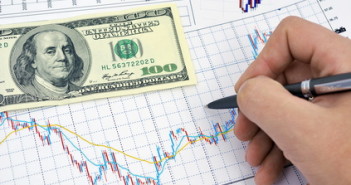Expectations are quite high from Bernanke’s speech at Jackson Hole, and this may end in a disappointment. David Song of DailyFx discusses this important event, as well as other topics: What will happen in currency markets if we enter a recession, what is expecting us with central bank movements and more, in an interview.
David Song studied macroeconomic policies under a visiting scholar at the Federal Reserve Bank of St. Louis while attending the Zicklin School of Business at Baruch College, and graduated with a Bachelor of Business Administration degree majoring in finance. During his undergraduate program, David acquired a strong understanding of technical analysis from a former-president of the Market Technicians Association, and incorporates both fundamentals and technicals in his analysis. After starting at DailyFX, David authors the daily briefings for the U.S. Open as well as the Trading the News report. 
- What do you think that Ben Bernanke will say in the highly anticipated speech in Jackson Hole? How do you think the dollar will react?
There’s speculation that Fed Chairman Ben Bernanke will show an increased willingness to expand monetary policy further, but I think that the central bank head will refrain from hinting at another round of quantitative easing as the economic recovery is expected to gather pace over the coming months. The strong opposition from Fed officials will make it increasingly difficult for the central bank head to push for additional monetary support, and we may see a growing rift within the FOMC as policy makers see an increased risk for inflation. In turn, the optimism surrounding the Jackson Hole symposium would quickly deteriorate, and we may see the U.S. dollar appreciate following the conference as market sentiment falters.
- If sluggish growth in the West turns into a recession, is the dollar set to benefit as it did after after Lehman, or are things significantly different this time?
With risk sentiment heavily influencing price action in the currency market, the risk of a double-dip recession could spark increased demands for the reserve currency as market participants scale back their appetite for yields. As long as the Federal Reserve preserves its zero-interest rate policy, we should see the USD maintain the inverse correlation with risk, and fears surrounding the economic outlook could prop up the greenback as it benefits from safe-haven flows.
- The ECB has already spent around 36 billion euros in the current wave of bond buying. Do you think it will be able to continue sterilizing these buys as it did so far?
The European Central Bank certainly has the capacity to sterilize additional bond purchases, but it seems as though there will be an increased reliance on the ECB to support the financial system as European policy maker struggle to restore investor confidence. It certainly seems as though the Governing Council has little choice but to carry its nonstandard measures into the following year, and the central bank may step up its efforts to support the financial system in light of the heightening risk for contagion. At the same time, the ECB may also take steps to support the real economy as the region faces a slowing recovery, and we may see central bank President Jean-Claude Trichet continue to soften his hawkish tone for monetary policy as the tough austerity measures bears down on economic activity.
- The Swiss authorities seem to be active and innovative in their intervention efforts. Do you think it may succeed this time?
The increased efforts to stem the marked appreciation in the Swiss franc appear to be having the desired effect, but the Swiss National Bank may have to take additional steps to have a longer-lasting impact on the exchange rate as the central bank struggles to sap demands for the low-yielding currency. As a result, the SNB may continue to toss around different mechanisms to stabilize the exchange rate, and the central bank may ultimately look towards a coordinated move to further depreciate the local currency.
- Do you think that Australia’s RBA is set to move on the rates in 2011? Cutting and hiking options have been floating around.
In light of the recent comments by the RBA, the central bank looks as though it may abandon its ‘mildly restrictive’ policy as the isle-nation faces a slowing recovery. Indeed, there’s speculation that the central bank will lower the benchmark interest rate from 4.75% as early as the next interest rate decision on September 6, and Governor Glenn Stevens may show a greater willingness to ease monetary policy over the remainder of the year in an effort to shore up the economy. As the region struggles to emerge from the slew of natural disasters from earlier this year, the RBA may indicate lower borrowing costs for 2012, and dovish comments from the central bank could spark a sharp selloff in the Australian dollar as interest rate expectations falter.
